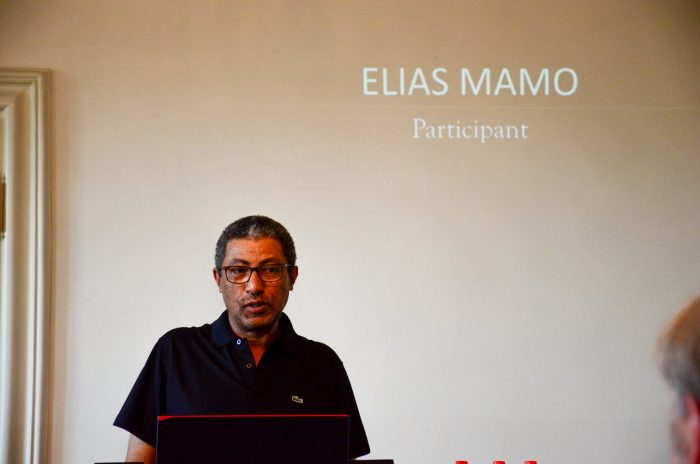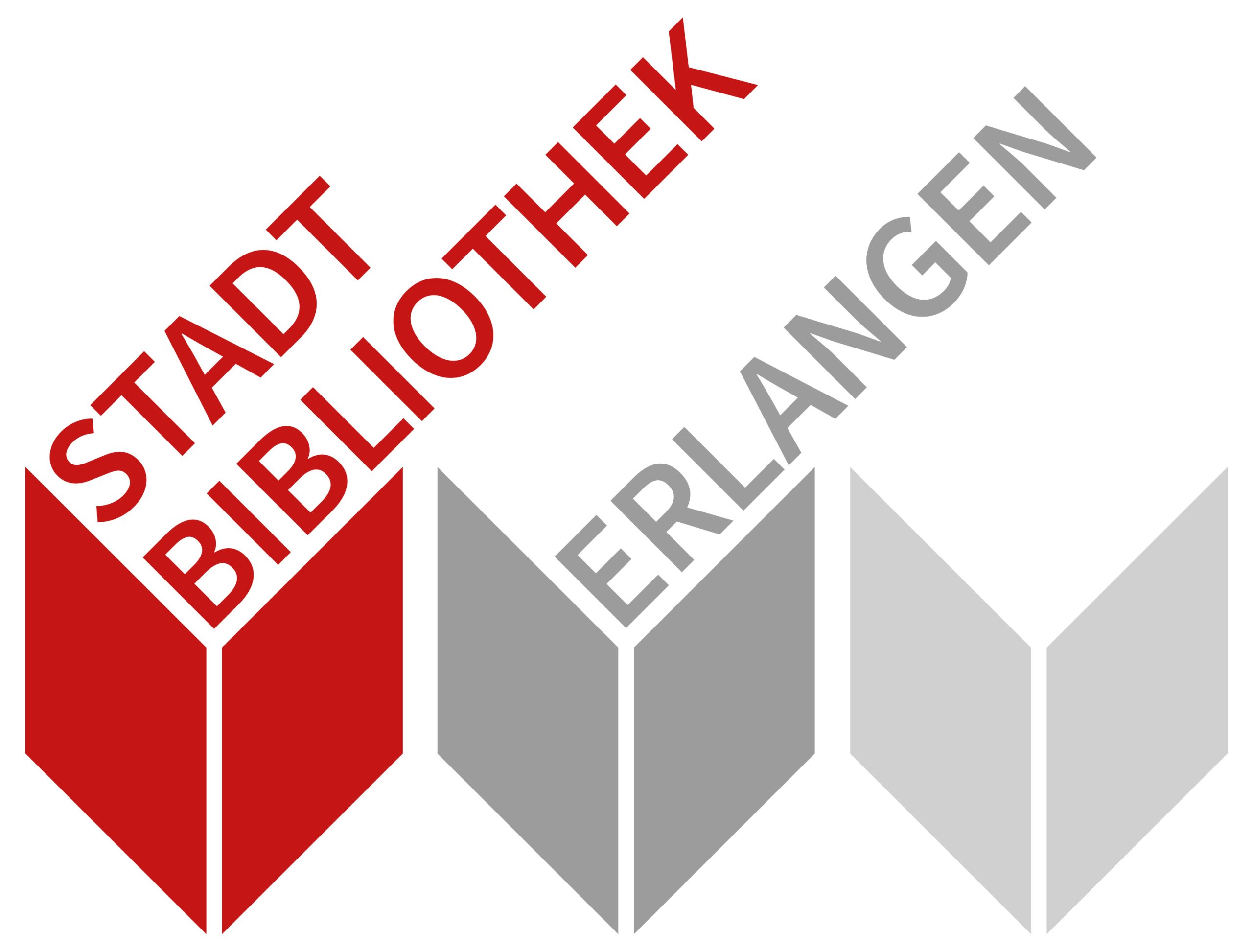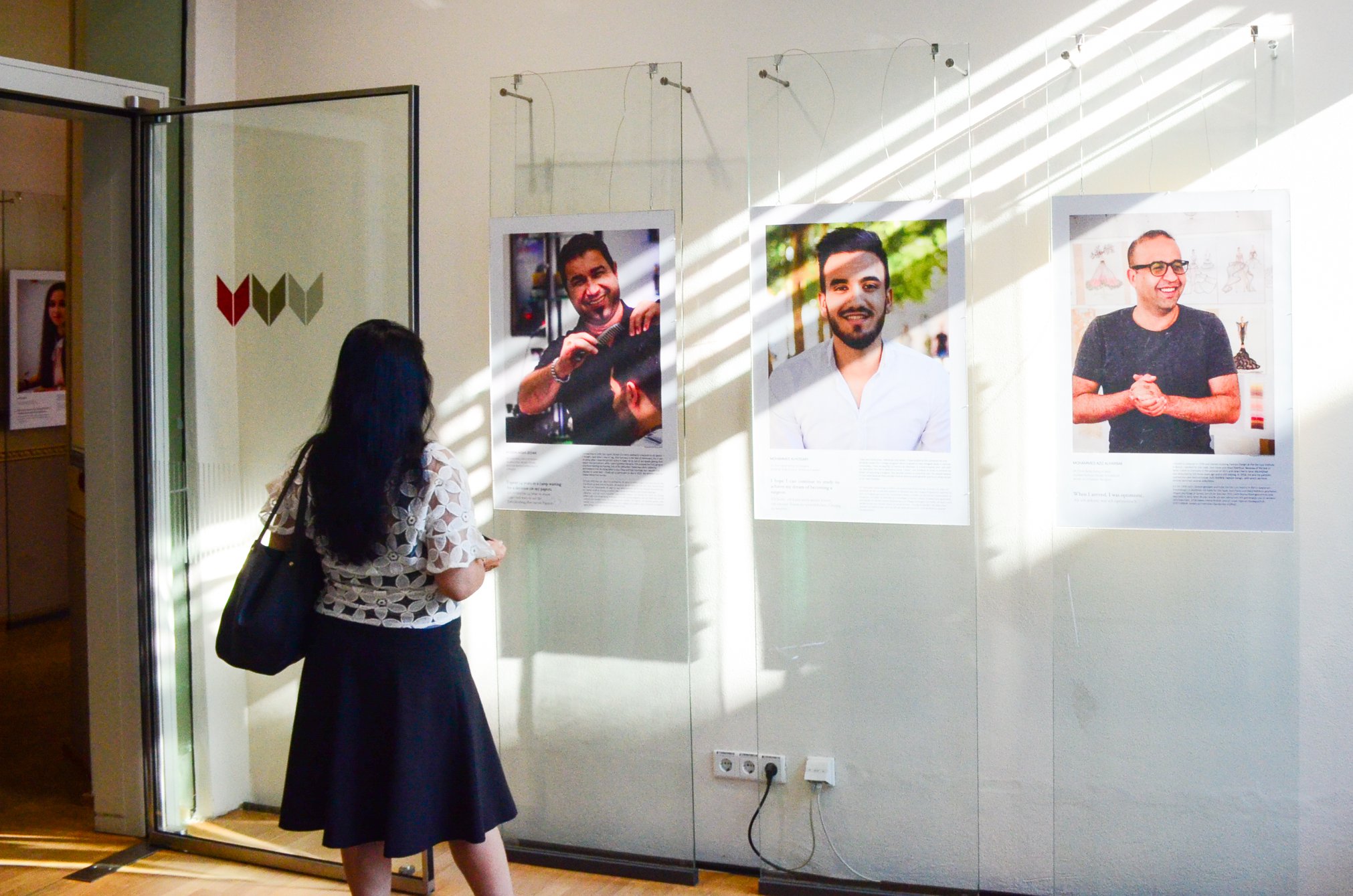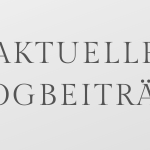Refugees and their Journeys to Success
“I hope that I can do something with my life, and not be destroyed by war.” Muhannad Kamal Addeen
The debate in Germany on the influx of refugees has been a very divisive one. The word “refugee” has become a negative label, putting all people seeking refuge into one, seemingly homogenous box. The photo exhibit Starting Over, changes the conversation from a politicized one to a personal one. Placing the individual front and center reminds us that the label “refugees” can’t be simply defined. It is a group of thousands of individuals, each with different backgrounds, opinions, beliefs, aspirations and dreams.
In the beginning of this project, we thought, “how come there is hardly any positive news on refugees? How come their voices aren’t part of this wide, daily discussion?” The aim of the project soon became to feature “successful” refugees who have found work either in a profession or industry which was in line with their original career or education back home, or those who have found new education or career paths to pursue.
Success is a word which means different things to different people. Although we sought to find refugees with professional success, we soon found out that it is almost impossible to separate it from other kinds of contentment and joy, like having one’s family with us, safe and away from falling bombs. Which, by the way, is not a privilege granted to all.
Refugees are individuals – each of them with a face, each of them with a story
The European Asylum System looks pretty straight forward on the surface, but the situation on the ground is quite different. Every individual experience shared with us was so different from the other. One of our interviewees stayed 14 years in a camp waiting for his papers, while others were out in half a year. Through our discussions, we learned about their wounds from the war and their dangerous journey to Europe, and we felt their fear and worry for the relatives and friends they couldn’t bring with them.

We have spoken to nearly 60 refugees from across Germany, but only 20 agreed to take part in our photo exhibit. It didn’t occur to us that showing your face and telling your story in a public library for several weeks under the banner “refugee” took so much courage and trust. We’ve had many people refuse because they didn’t feel like their story was relevant, or would be heard without judgement. Others just felt that this was an attempt to beautify a situation which was in reality, rather ugly. That many are unsuccessful, and that their stories matter too.
Our exhibit, however, does not paint a sunny picture. It paints a picture with all the colors, both bright and grey, of how complicated it can be to start working again, learning again, and living again, in a completely new country (which may or may not let you stay). It shows you how much motivation and will goes behind starting over.
There are many factors which affect a person’s ability to find success in Germany. Some of them are:
1. Language
Nearly all of our interviewees said that learning German was the most important thing to do. The language, they said, will help in securing a job and becoming an effective member of society.
2. Gender
Women have a much harder time adjusting and finding work. There are multiple facets to this, but according to some interviewees, women who wear hijabs have a harder time getting interviews. Secondly, they are also busy supporting their children’s integration at the same time as their own. Lastly, some of them follow traditional gender roles in which the man is expected to be the breadwinner.
3. Age and Education
Age plays a great role in finding success in Germany. Many of our interviewees had to gain new certificates here, even if their university degrees from back home already proved their qualification. Interviewees who were under 25, and had a background in Information Technology, Engineering or Medicine, had a much easier time finding work than those who had an education in Law or Social Sciences or older people who have not learned English.
4. Family
An interviewee told me that on average, it takes around 5.000 Euros for one person to flee from his or her home country to Germany. He was separated from his family for 7 years before he could find ways to bring them here. To many, professional success doesn’t mean anything without their families with them. For those who come from rural areas, where the violence of the war is most intense, there are little to no ways for them to communicate with them to check if they are safe.
Conclusion
The main point we learned from this project is that individual narratives matter. As students, the only thing we can do is build small bridges and start small conversations. We hope this exhibit can be a platform where we can learn something new about others, on a human level, beyond the rigid label of “refugee”.
What would you do if your life were to change overnight?
Would you have the courage to start over?
Ebony Lautner
The exhibition is open from July 26 to September 18, 2018 at the Erlangen’s City Library.
Starting Over is organized by students of the Master in Human Rights program of the University of Erlangen-Nuremberg.
Redaktion
Neueste Artikel von Redaktion (alle ansehen)
- Revolution und Räterepublik in Bayern – 5. April 2024
- Mein digitaler Buchclub – 21. März 2024
- Wo ist Heimat? – 18. März 2024
- Praktikum in der Stadtbibliothek: eine spannende Reise durch die Abteilungen – 29. Februar 2024
- Phantasmata: Vernunft ist auch keine Lösung – 9. Februar 2024






Schreibe einen Kommentar